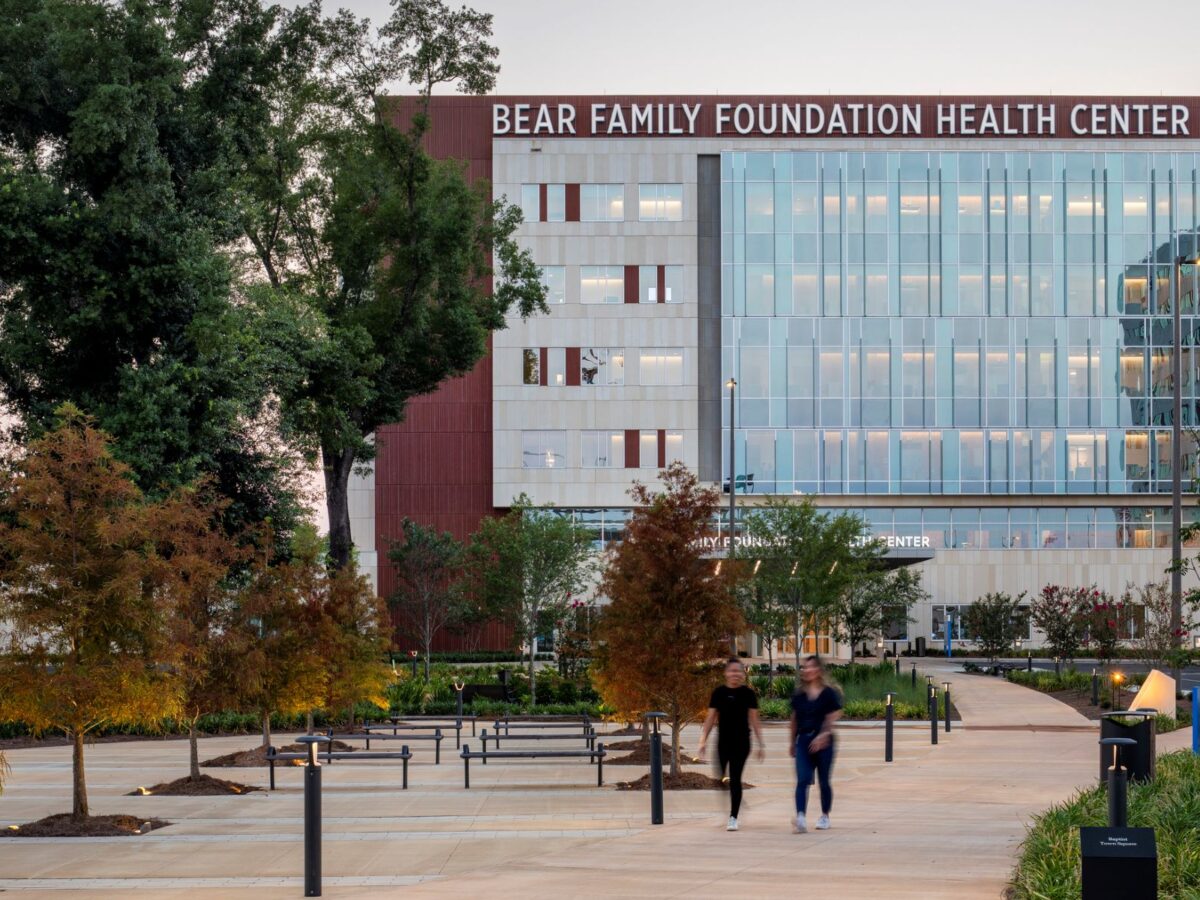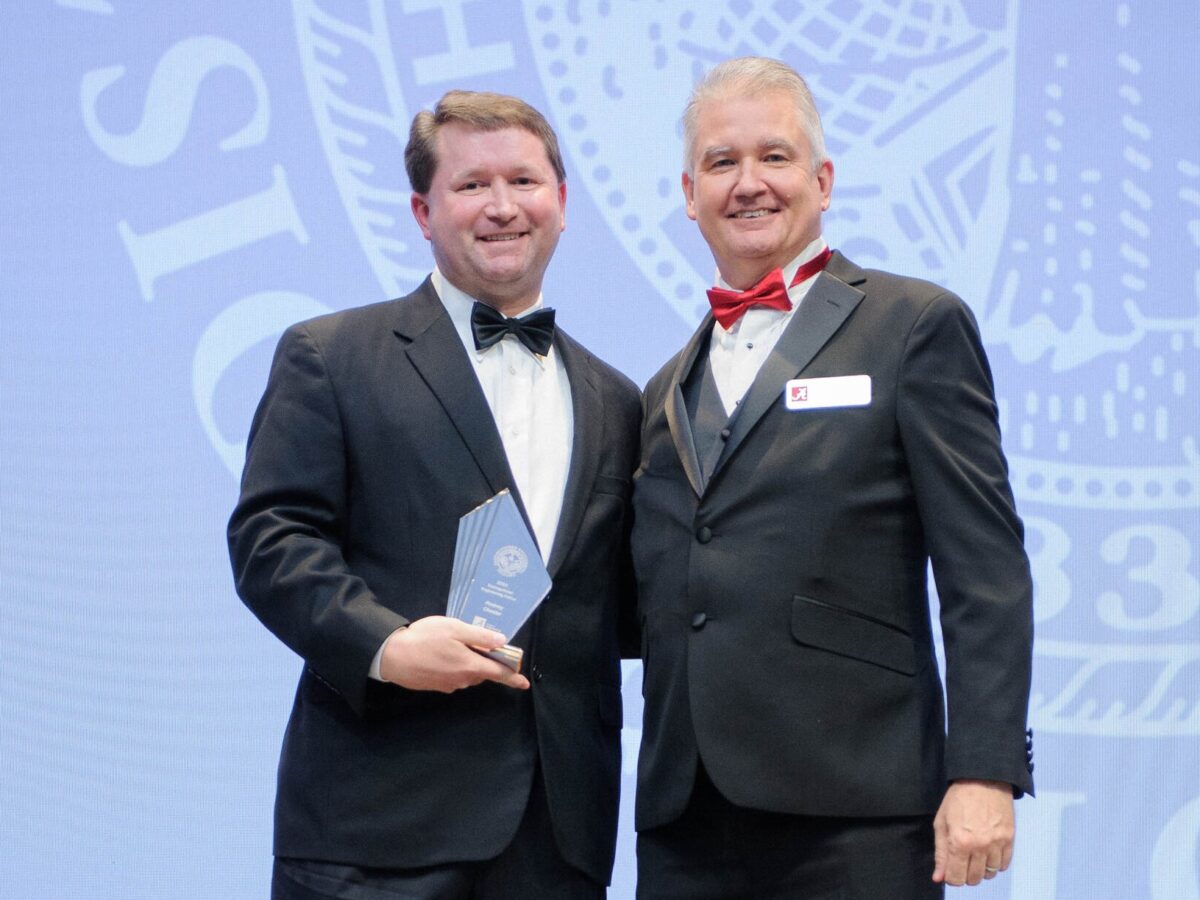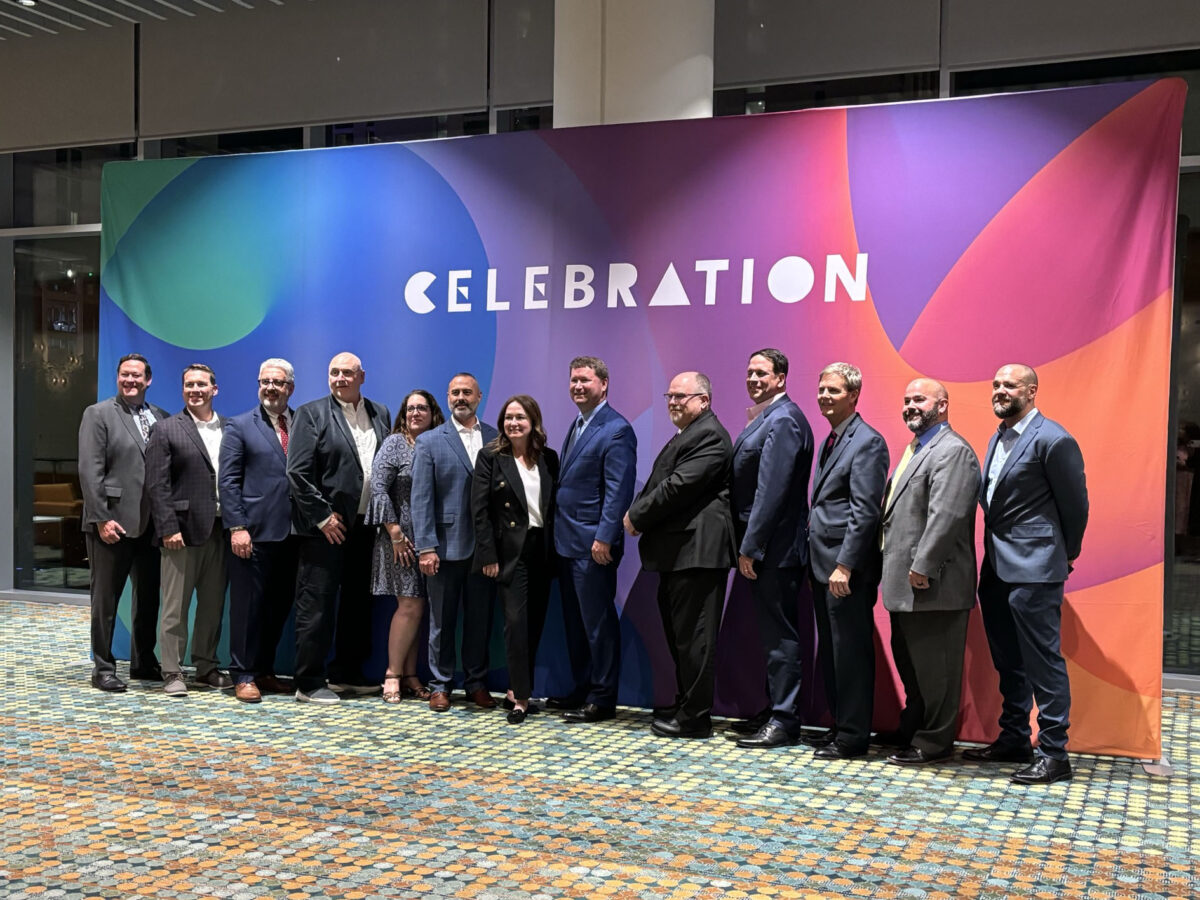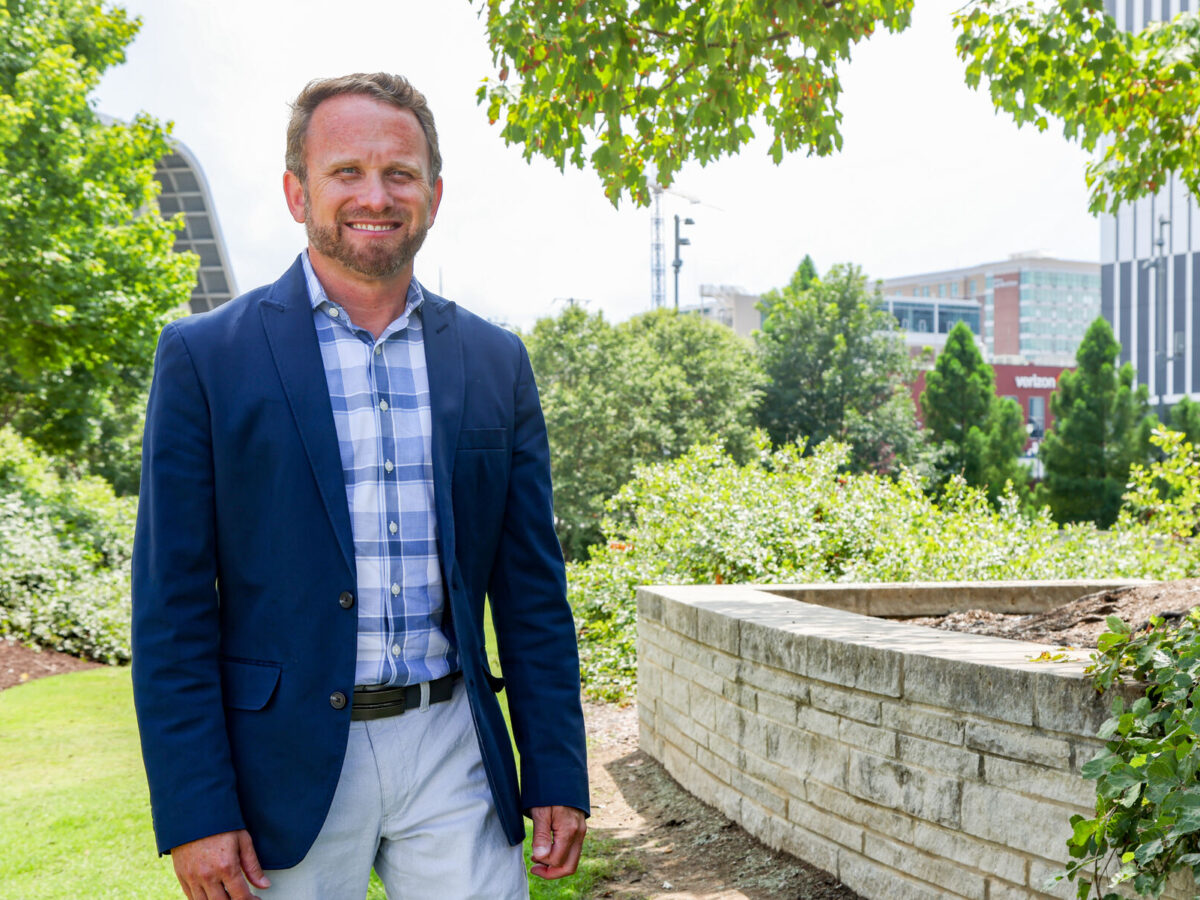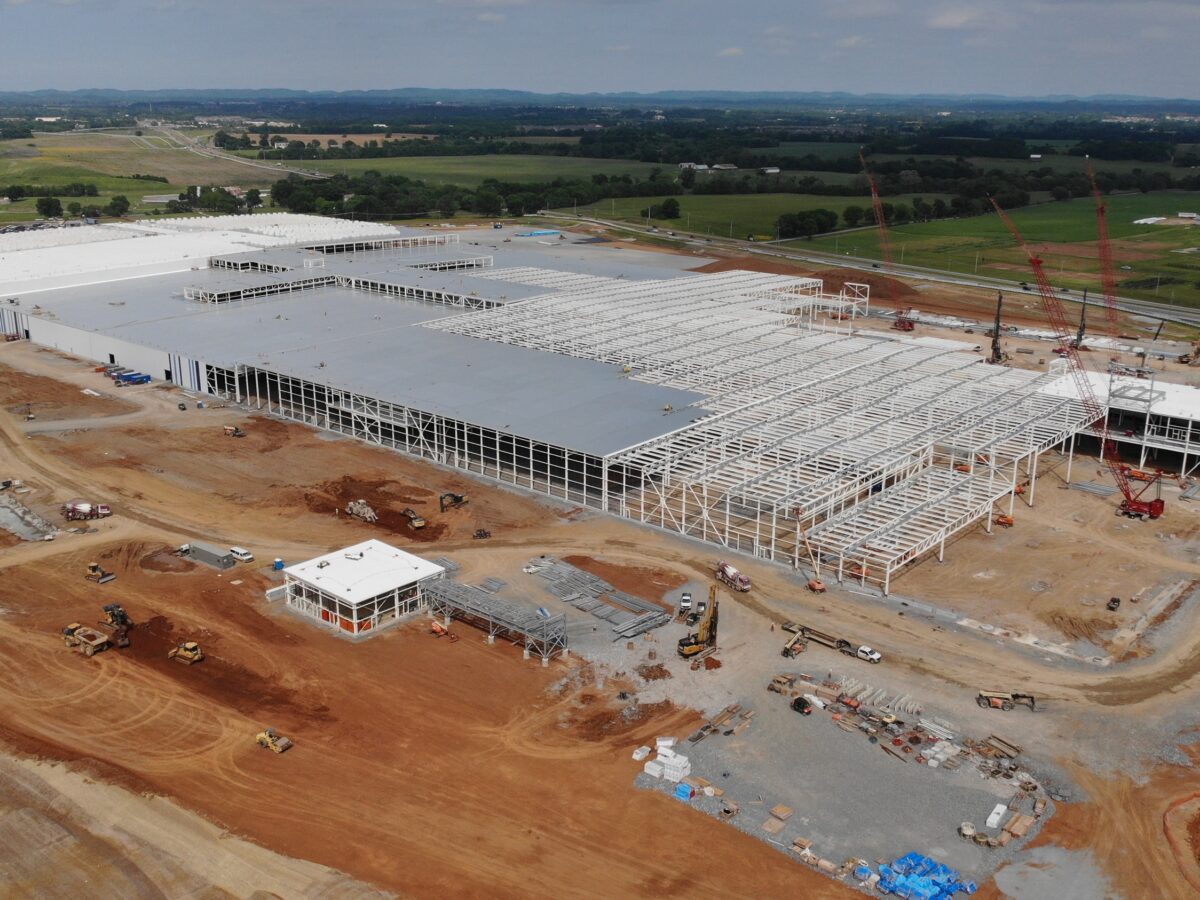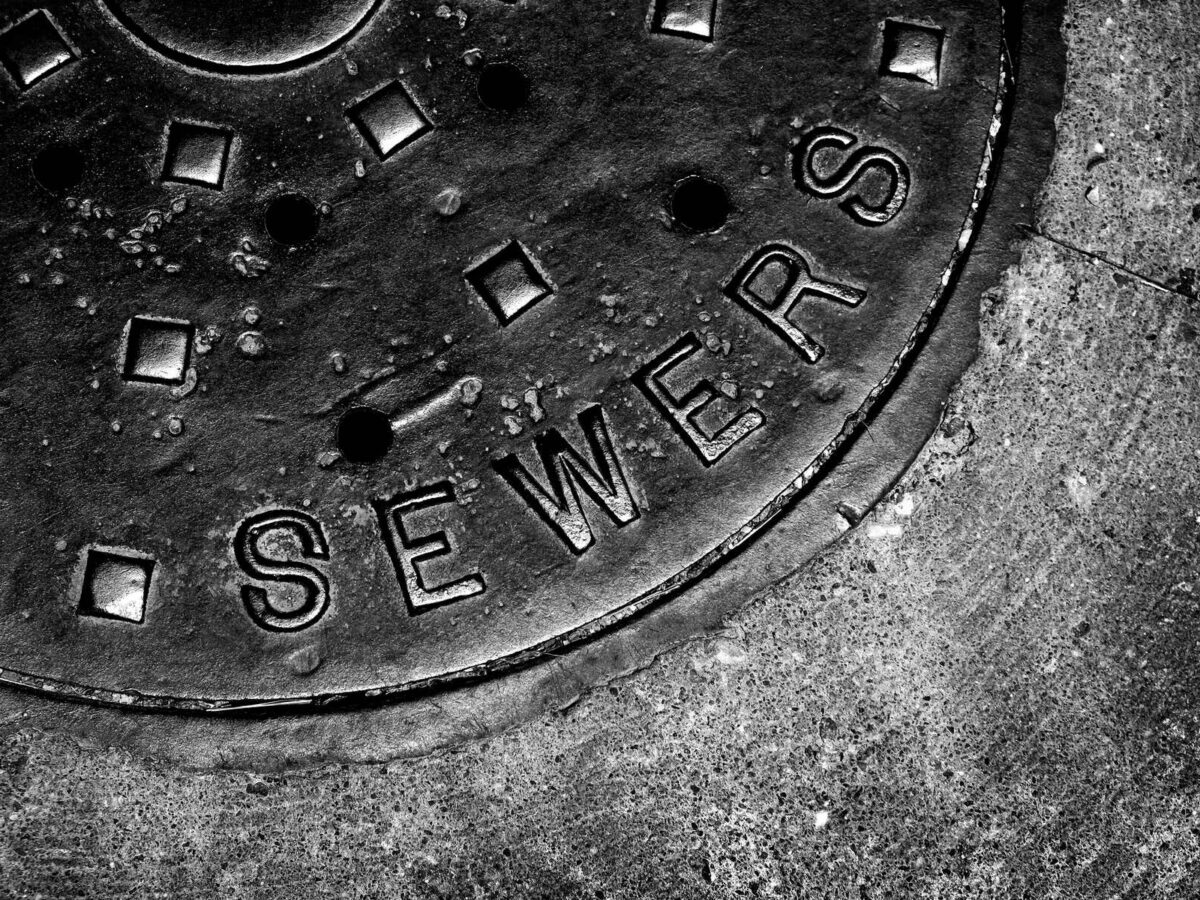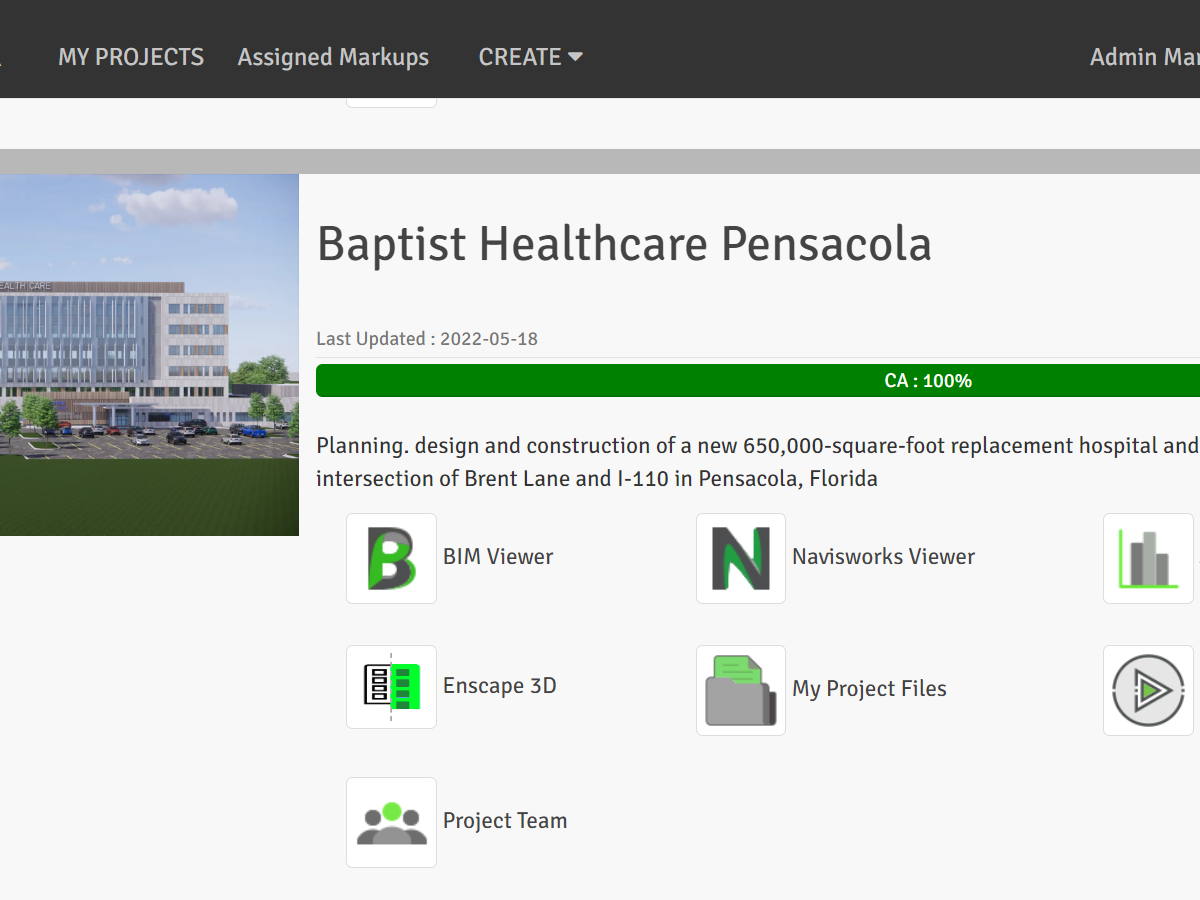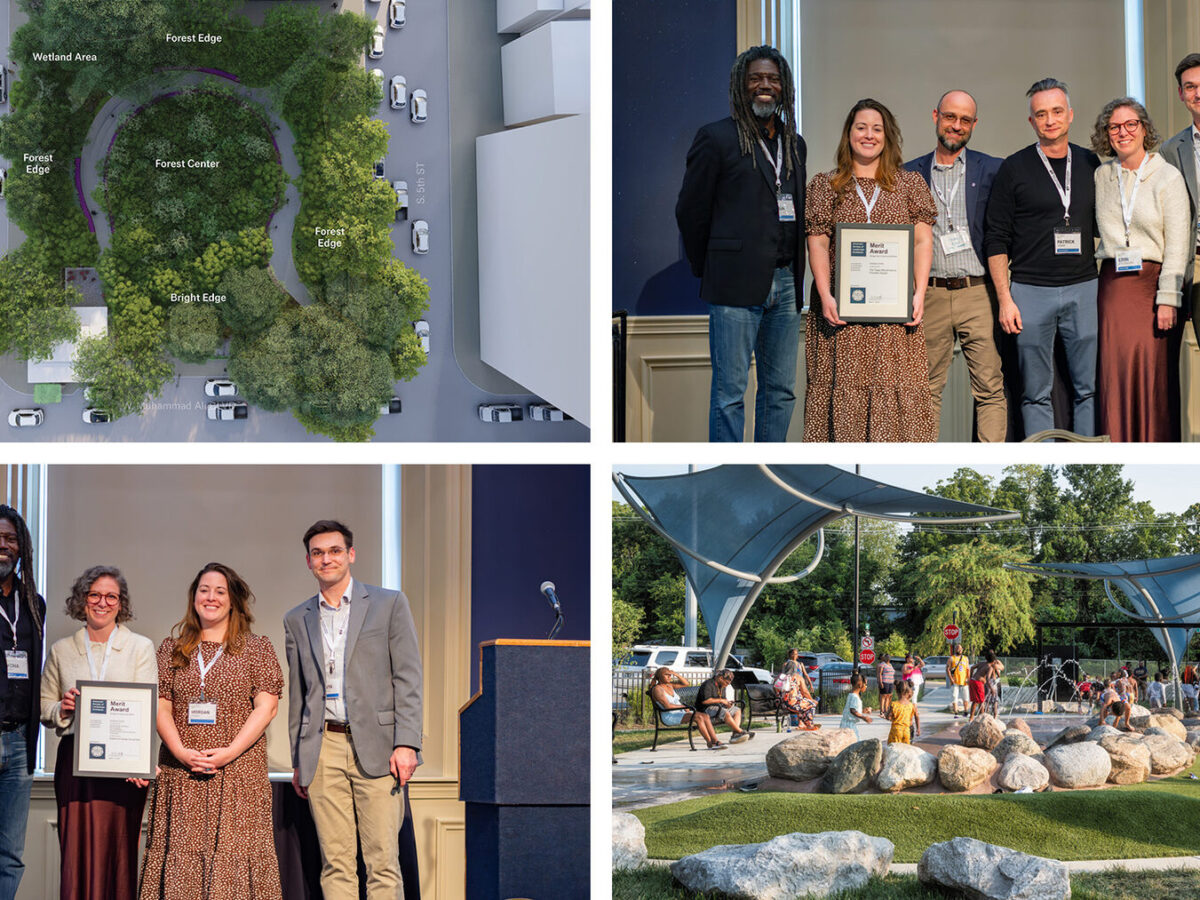Gresham Smith, a top-ranked architecture, engineering and planning firm with $328 million in annual gross revenue, is proud to announce that it has achieved carbon neutrality for the firm’s 2022 business operations—the last full year of data available—and is committed to continue working towards net zero carbon emissions. This achievement is the result of actions the firm has taken to effectively measure and quantify the firm’s 2022 carbon footprint, implement operational improvements to reduce net carbon emissions, and invest in carbon avoidance and removal initiatives to offset remaining emissions.
After conducting a robust emissions inventory, the firm identified its four largest sources of emissions: fuel for heating offices, fuel for corporate vehicles, electricity for offices, and employee commuting and travel. To reduce emissions from these sources, Gresham Smith is designing its new office spaces to achieve LEED certification, instituting policies and procedures designed to reduce energy use and obtaining renewable energy certificates.
To offset remaining carbon emissions, Gresham Smith partnered with Cloverly, a climate action platform headquartered in Atlanta, Georgia, to curate a portfolio of projects focused on offsetting the global carbon footprint. The firm has six selected projects, located in areas where Gresham Smith lives, works, and plays, that demonstrate ingenuity through refrigerant avoidance and destruction, nature preservation and permanent carbon removal.
“Gresham Smith’s Core Purpose is to create healthy and thriving communities, and to do that we must recognize the way our organization’s carbon emissions impact the environment. I’m proud of our firm for taking accountability for our existing emissions, implementing solutions to reduce our emissions, and championing projects that offset emissions in the communities where we live, work and play,” said Gresham Smith CEO and Board Chair Rodney Chester.
The carbon offsetting projects sponsored by Gresham Smith include:
- Tradewater US Ozone-Depleting Substances Destruction (Ohio)The highly potent refrigerants commonly used in various forms of residential and industrial refrigeration and cooling systems deplete the ozone layer. Tradewater uses specialized processes to destroy the refrigerants from discarded refrigeration units, preventing leaking into the atmosphere.
- Blue Ridge Mountains Food Distribution Advanced Refrigeration Project (North Carolina)Blue Ridge Mountains Food Distribution hub serves local restaurants, schools and hospitals, serving as a pivotal link for fresh and frozen foods. This project replaces the organization’s traditional refrigeration systems that utilize potent refrigerants with a zero-impact refrigerant, achieving a 100% reduction in emissions.
- Sandy Cross Forest Preservation (Ohio)The vegetation in Ohio’s Sandy Cross Forest contributes significantly to carbon sequestration. This project protects the 85-year-old tree canopy, combating deforestation, preserving biodiversity and enhancing community well-being.
- St. Elmo Forest Preservation (Tennessee)Located on Tennessee’s Lookout Mountain, St. Elmo Forest is one of the most biologically diverse yet critically imperiled ecoregions in the world. This project not only ensures habitat connectivity for diverse wildlife and enhances recreation opportunities, but also creates employment and scholarship opportunities for at-risk teens.
- Glanris Biochar (Mississippi)The husks discarded during the rice harvesting process generate carbon emissions that contribute to poor local air conditions. This project uses Glanris’ patented process to manufacture biocarbon from discarded husks, which can be used for water filtration, cement and soil amendment to address environmental challenges.
- CarbonCure (Georgia)Cement production is the largest contributor to embodied carbon in the built environment. CarbonCure’s technology transforms waste carbon into mineralized carbon within concrete, providing a permanent carbon storage solution and reducing the need for cement production.
Gresham Smith is continuing to assess the firm’s carbon footprint, with the 2023 emissions inventory underway, and is taking action to reduce the carbon emissions resulting from its operations.
“Achieving carbon neutrality for our business operations is an important milestone on our journey to achieving net zero,” said Lauren Seydewitz, LEED AP BD+C, Sustainability and Resiliency Program Manager at Gresham Smith. “Looking forward, we will continue to calculate and offset our carbon footprint annually and are evaluating ways to further avoid and reduce emissions from our business operations.”



